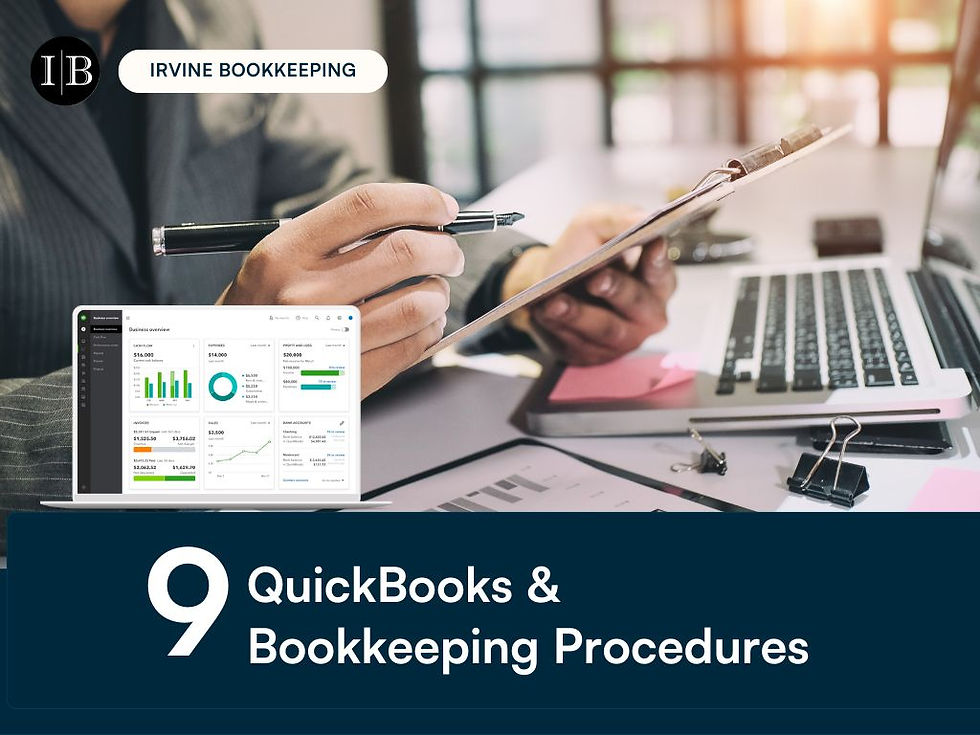Accounts Receivable vs Accounts Payable in QuickBooks?
- Grace Phan
- Jul 30, 2019
- 2 min read
Updated: May 22, 2024

Have you ever used the functions of creating invoices or bills either in Quickbooks?
At the moment we created the invoices and bills, and Account Receivable and Account Payable are created simultaneously.
We use Accounts Receivable (A/R) to keep track of money that customers owe to us. A/R aging is a great report that lists unpaid customer invoices and unused credit memos by specific date ranges. As a result, we can utilize A/R to show us the cash expected to be received in the future. As business owners selling a good or service to our customers, oftentimes, we need to send Estimates or Quotes. As customers agreed with the Estimates or Quotes, we will create the Invoices and send them to customers. for keeping track of the asset, record the amount as a receivable in your accounting books. Accounts Receivable will increase which will help us to record the payment in the future like current Assets. When the Invoices are paid, so you will use receive payment function from QuickBooks to decrease accounts receivable. The amount will move to the "Undeposited Fund". Finally, we will move the amount from the "Undeposited Fund" to the Bank as we physically deposited the fund to our business bank and the transaction is recorded on our bank.
You may also like:
Accounts Payable (A/P) is an account that helps us to record the amount that needs to be paid via bill and Bill Payments. A/P helps us keep track of money that we owe to any vendors. For example, we purchase a good or service, we receive an invoice from our vendor. The invoice tells us how much money we owe, or our accounts payable. And then, we will enter it into QuickBooks via the Bills to keep track of the liability and record the amount as payable in our accounting books. Accounts Payable are increased. When you pay off Bills, the amount will be decreased on accounts payable.
In Summary, running a business and setting up stronger accounting books is essential. A/R and A/P are two important key accounts to assist business owners in analyzing and determining our business cash flow. Knowing how much payment we are going to receive and how much money we need to outflow today will give a business owner a sense of control.
If you need advice or services on any aspect of bookkeeping, accounting, and tax, our specialists are ready to help. Get in touch with us for a free quote.
#AccountsPayble #AccountsReceivable #createinvoices #createbill #bookkeepinginIrvine #bookkeepinginorangecounty






Comments